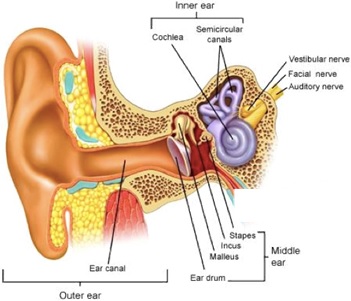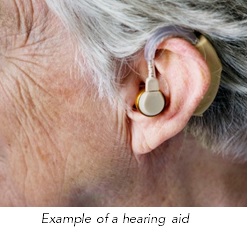What is Hearing Loss?
Hearing loss in adults may be temporary or permanent. It can affect all age groups but is more common in older adults. About 30% of people above the age of 65 have hearing loss.
How Do We Hear?
Sound is transmitted to our brain via three parts of our ear:

- Outer Ear (Ear canal). Sound passes through the ear canal and vibrates the ear drum.
- Middle Ear contains three tiny bones which are connected and vibrate to transfer sounds from the ear drum to the inner ear.
- Inner Ear contains the snail-shaped organ (cochlea), which converts sound into electrical signals and transmits them to the brain via the hearing nerve.
Causes of Hearing Loss
Hearing loss may result from:
- Natural ageing process (Presbyacusis)
- Exposure to loud noises
- Wax in the outer ear
- Middle ear problems
- Infections/ inflammation of the inner ear
- Certain medications
- Tumour of the hearing nerve
Symptoms
You may be suffering from hearing loss if you experience the following symptoms:
- Difficulty hearing conversations
- Frequently asking people to repeat what they have just said
- Difficulty hearing in noisy environments
- Need to turn up the volume of the TV/ radio
- Tinnitus (Ringing/ buzzing sounds in the ear)
How is Hearing Loss Treated?
Treatment and rehabilitation options depend on the cause, severity and type of hearing loss.
Some types of hearing loss are medically or surgically treatable, while others are not.
Timely treatment or rehabilitation can help to restore quality of life to a great extent.
Hearing loss resulting from ageing is permanent, but patients are often able to benefit from the use of hearing aids.

How to Prevent Hearing Loss?
Age-related hearing loss cannot be prevented. However, you should avoid loud noises to prevent further worsening.
Wear ear plugs or muffs if noise-exposure is required.
